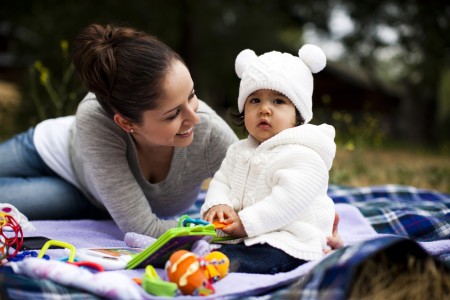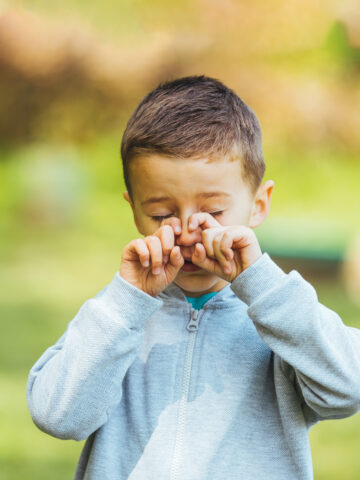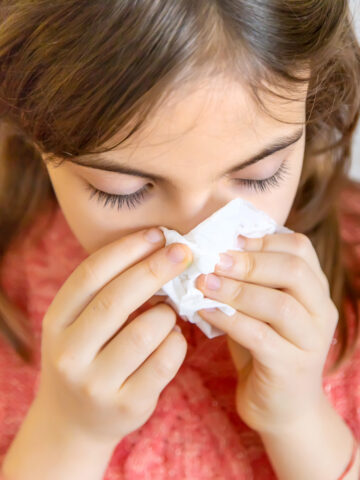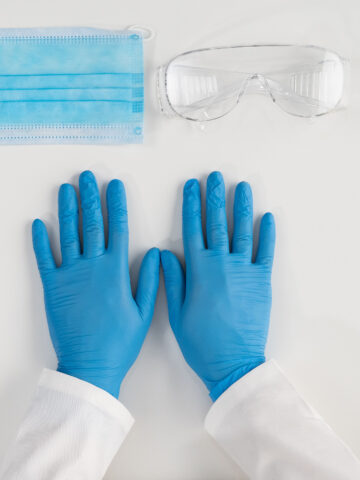Before hastily packing away holiday decorations into the garage, parents can take a few simple steps now to help prevent a sudden surge of allergy symptoms in children next holiday season, say CHOC allergists.
Dr. Wan-Yin Chan recommends that parents wipe down and air dry holiday decorations before packing them away to help minimize dust and mold accumulation when they return again next year. These allergens can prompt sudden allergy symptoms attacks in children, a phenomenon some doctors refer to as the “holiday effect.”
Dust from orna ments and decorations, mold from Christmas trees, exposure to new foods, and visits with others’ pets during the holidays can trigger these attacks in children and adults alike.
ments and decorations, mold from Christmas trees, exposure to new foods, and visits with others’ pets during the holidays can trigger these attacks in children and adults alike.
Holiday gatherings and spending more time indoors tends to expose people to other allergic triggers that they may not usually be exposed to during other times of the year,” says Dr. Sarah Field.
When the holidays roll around again next year, parents can take measures to prevent allergy and asthma symptoms.
Though comforting and festive to some, the fragrance emitted from a fresh tree may be irritating to others, and some trees may harbor mold spores, which can trigger asthma or allergies, cautions Dr. Field.
To combat this, Dr. Chan suggests adults leave a new Christmas tree to dry in the garage for a week and then shake it out before bringing into the home. Taking the same precautions recommended before packing away ornaments can also help eliminate the introduction of dust and mold into the home when decorating begins, she adds.
Traveling or even visiting homes of others can introduce other allergic or asthmatic symptoms.
Parents should ensure that children take any regular maintenance asthma and allergy medications, especially if traveling. They should also have an updated asthma action plan from their physician for asthma worsening.
Those with food allergies should inquire about ingredients in dishes served at others’ homes, Dr. Field says. Consider eating before visiting or bringing snacks from home, and be sure to bring an epinephrine autoinjector in case of accidental exposure, she says.
Children may also have an allergic reaction to new animals encountered in others’ homes, the doctors explain. Further, teenagers may suddenly experience allergy or asthma symptoms to their own pets after returning home from a semester at college. During their time away, the teen may lose tolerance to their pet. This phenomenon is called the “Thanksgiving effect,” explains Dr. Field.





